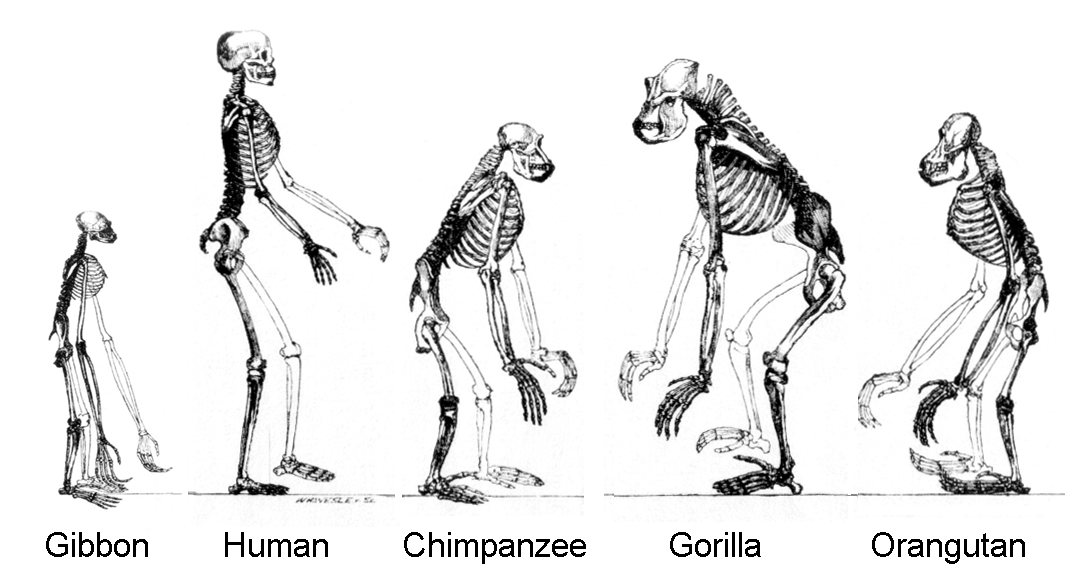|
Cognitive Specialization
Cognitive specialization suggests that certain behaviors, often in the domain of social communication, are passed on to offspring and refined to be maximally beneficial by the process of natural selection. Specializations serve an adaptive purpose for an organism by allowing the organism to be better suited for its habitat. Over time, specializations often become essential to the species' continued survival. Cognitive specialization in humans has been thought to underlie the acquisition, development, and evolution of language, theory of mind, and specific social skills such as trust and reciprocity. These specializations are considered to be critical to the survival of the species, even though there are successful individuals who lack certain specializations, including those diagnosed with autism spectrum disorder or who lack language abilities. Cognitive specialization is also believed to underlie adaptive behaviors such as self-awareness, navigation, and problem solving skills in ... [...More Info...] [...Related Items...] OR: [Wikipedia] [Google] [Baidu] |
Adaptation
In biology, adaptation has three related meanings. Firstly, it is the dynamic evolutionary process of natural selection that fits organisms to their environment, enhancing their evolutionary fitness. Secondly, it is a state reached by the population during that process. Thirdly, it is a phenotypic trait or adaptive trait, with a functional role in each individual organism, that is maintained and has evolved through natural selection. Historically, adaptation has been described from the time of the ancient Greek philosophers such as Empedocles and Aristotle. In 18th and 19th century natural theology, adaptation was taken as evidence for the existence of a deity. Charles Darwin proposed instead that it was explained by natural selection. Adaptation is related to biological fitness, which governs the rate of evolution as measured by change in allele frequencies. Often, two or more species co-adapt and co-evolve as they develop adaptations that interlock with those of the oth ... [...More Info...] [...Related Items...] OR: [Wikipedia] [Google] [Baidu] |
Algorithm
In mathematics and computer science, an algorithm () is a finite sequence of rigorous instructions, typically used to solve a class of specific Computational problem, problems or to perform a computation. Algorithms are used as specifications for performing calculations and data processing. More advanced algorithms can perform automated deductions (referred to as automated reasoning) and use mathematical and logical tests to divert the code execution through various routes (referred to as automated decision-making). Using human characteristics as descriptors of machines in metaphorical ways was already practiced by Alan Turing with terms such as "memory", "search" and "stimulus". In contrast, a Heuristic (computer science), heuristic is an approach to problem solving that may not be fully specified or may not guarantee correct or optimal results, especially in problem domains where there is no well-defined correct or optimal result. As an effective method, an algorithm ca ... [...More Info...] [...Related Items...] OR: [Wikipedia] [Google] [Baidu] |
Steven Pinker
Steven Arthur Pinker (born September 18, 1954) is a Canadian-American cognitive psychologist, psycholinguist, popular science author, and public intellectual. He is an advocate of evolutionary psychology and the computational theory of mind. Pinker is the Johnstone Family Professor of Psychology at Harvard University, and his academic specializations are visual cognition and developmental linguistics. His experimental subjects include mental imagery, shape recognition, visual attention, children's language development, regular and irregular phenomena in language, the neural bases of words and grammar, as well as the psychology of cooperation and communication, including euphemism, innuendo, emotional expression, and common knowledge. He has written two technical books that proposed a general theory of language acquisition and applied it to children's learning of verbs. In particular, his work with Alan Prince published in 1989 critiqued the connectionist model of how children ac ... [...More Info...] [...Related Items...] OR: [Wikipedia] [Google] [Baidu] |
Human Evolution
Human evolution is the evolutionary process within the history of primates that led to the emergence of ''Homo sapiens'' as a distinct species of the hominid family, which includes the great apes. This process involved the gradual development of traits such as human bipedalism and language, as well as interbreeding with other hominins, which indicate that human evolution was not linear but a web.Human Hybrids (PDF). Michael F. Hammer. ''Scientific American'', May 2013. The study of human evolution involves scientific disciplines, including [...More Info...] [...Related Items...] OR: [Wikipedia] [Google] [Baidu] |
Social Groups
In the social sciences, a social group can be defined as two or more people who interact with one another, share similar characteristics, and collectively have a sense of unity. Regardless, social groups come in a myriad of sizes and varieties. For example, a society can be viewed as a large social group. The system of behaviors and psychological processes occurring within a social group or between social groups is known as group dynamics. Definition Social cohesion approach A social group exhibits some degree of social cohesion and is more than a simple collection or aggregate of individuals, such as people waiting at a bus stop, or people waiting in a line. Characteristics shared by members of a group may include interests, values, representations, ethnic or social background, and kinship ties. Kinship ties being a social bond based on common ancestry, marriage or adoption. In a similar vein, some researchers consider the defining characteristic of a group as social int ... [...More Info...] [...Related Items...] OR: [Wikipedia] [Google] [Baidu] |
Developmental Delay
Global developmental delay is an umbrella term used when children are significantly delayed in their cognitive and physical development. It can be diagnosed when a child is delayed in one or more milestones, categorised into motor skills, speech, cognitive skills, and social and emotional development. There is usually a specific condition which causes this delay, such as Fragile X syndrome or other chromosomal abnormalities. However, it is sometimes difficult to identify this underlying condition. Other terms associated with this condition are failure to thrive (which focuses on lack of weight gain and physical development), intellectual disability (which focuses on intellectual deficits and the changes they cause to development) and developmental disability (which can refer to both intellectual and physical disability altering development). Causes Developmental delay can be caused by learning disabilities, in which case the delay can usually be overcome with time and support - su ... [...More Info...] [...Related Items...] OR: [Wikipedia] [Google] [Baidu] |
Elsevier
Elsevier () is a Dutch academic publishing company specializing in scientific, technical, and medical content. Its products include journals such as ''The Lancet'', ''Cell'', the ScienceDirect collection of electronic journals, '' Trends'', the '' Current Opinion'' series, the online citation database Scopus, the SciVal tool for measuring research performance, the ClinicalKey search engine for clinicians, and the ClinicalPath evidence-based cancer care service. Elsevier's products and services also include digital tools for data management, instruction, research analytics and assessment. Elsevier is part of the RELX Group (known until 2015 as Reed Elsevier), a publicly traded company. According to RELX reports, in 2021 Elsevier published more than 600,000 articles annually in over 2,700 journals; as of 2018 its archives contained over 17 million documents and 40,000 e-books, with over one billion annual downloads. Researchers have criticized Elsevier for its high profit marg ... [...More Info...] [...Related Items...] OR: [Wikipedia] [Google] [Baidu] |
Cognition (journal)
''Cognition: International Journal of Cognitive Science'' is a bimonthly peer-reviewed scientific journal covering cognitive science. It was established in 1972 and is published by Elsevier. History ''Cognition'' is one of the few psychology journals of the 20th century that developed outside of the United States. The journal, founded by Jacques Mehler and Thomas Bever in 1972, was initially published quarterly, then every other month from 1982, and finally on a monthly basis since 1985. Work in the journal is considered "highly cited," and is noted to adequately represent research on an international level. In terms of representing topics within the cognitive sciences, a 2005 meta-analysis demonstrated that the journal primarily publishes work in psychology, with a small proportion of publications in linguistics and neuroscience Neuroscience is the scientific study of the nervous system (the brain, spinal cord, and peripheral nervous system), its functions and disorders ... [...More Info...] [...Related Items...] OR: [Wikipedia] [Google] [Baidu] |
Autism
The autism spectrum, often referred to as just autism or in the context of a professional diagnosis autism spectrum disorder (ASD) or autism spectrum condition (ASC), is a neurodevelopmental condition (or conditions) characterized by difficulties in social interaction, verbal and nonverbal communication, and the presence of repetitive behavior and restricted interests. Other common signs include unusual responses to sensory stimuli. Autism is generally understood as a ''spectrum disorder'', which means that it can manifest differently in each person: any given autistic individual is likely to show some, but not all, of the characteristics associated with it, and the person may exhibit them to varying degrees. Some autistic people remain nonspeaking over the course of their lifespan, while others have relatively unimpaired spoken language. There is large variation in the level of support people require, and the same person may present differently at varying times. Historically ... [...More Info...] [...Related Items...] OR: [Wikipedia] [Google] [Baidu] |
Cooperation
Cooperation (written as co-operation in British English) is the process of groups of organisms working or acting together for common, mutual, or some underlying benefit, as opposed to working in competition for selfish benefit. Many animal and plant species cooperate both with other members of their own species and with members of other species (symbiosis or mutualism). Among humans Humans cooperate for the same reasons as other animals: immediate benefit, genetic relatedness, and reciprocity, but also for particularly human reasons, such as honesty signaling (indirect reciprocity), cultural group selection, and for reasons having to do with cultural evolution. Language allows humans to cooperate on a very large scale. Certain studies have suggested that fairness affects human cooperation; individuals are willing to punish at their own cost (''altruistic punishment'') if they believe that they are being treated unfairly. Sanfey, et al. conducted an experiment where 19 ind ... [...More Info...] [...Related Items...] OR: [Wikipedia] [Google] [Baidu] |
David Premack
David Premack (October 26, 1925 – June 11, 2015) was an American psychologist who was a professor of psychology at the University of Pennsylvania. He was educated at the University of Minnesota when logical positivism was in full bloom. The departments of Psychology and Philosophy were closely allied. Herbert Feigl, Wilfred Sellars, and Paul Meehl led the philosophy seminars, while Group Dynamics was led by Leon Festinger and Stanley Schachter. Research Premack started in primate research in 1954 at the Yerkes Primate Biology Laboratory at Orange Park outside Jacksonville, Florida. His first two chimpanzee subjects, Sarah and Gussie, started at the University of Missouri and traveled with him to the University of California, Santa Barbara, and then to the University of Pennsylvania, where he had nine chimpanzee subjects. Premack's first publication (1959) was a new theory of reinforcement (which became known as Premack's principle). It argued that the more probable response i ... [...More Info...] [...Related Items...] OR: [Wikipedia] [Google] [Baidu] |
Vagrancy (biology)
Vagrancy is a phenomenon in biology whereby an individual animal (usually a bird) appears well outside its normal range (biology), range; they are known as vagrants. The term accidental is sometimes also used. There are a number of poorly understood factors which might cause an animal to become a vagrant, including internal causes such as navigatory errors (endogenous vagrancy) and external causes such as severe weather (exogenous vagrancy). Vagrancy events may lead to colonisation and eventually to speciation. Birds In the Northern Hemisphere, adult birds (possibly inexperienced younger adults) of many species are known to continue past their normal breeding range during their spring migration and end up in areas further north (such birds are termed spring overshoots). In autumn, some young birds, instead of heading to their usual wintering grounds, take "incorrect" courses and migrate through areas which are not on their normal migration path. For example, Siberian passeri ... [...More Info...] [...Related Items...] OR: [Wikipedia] [Google] [Baidu] |




